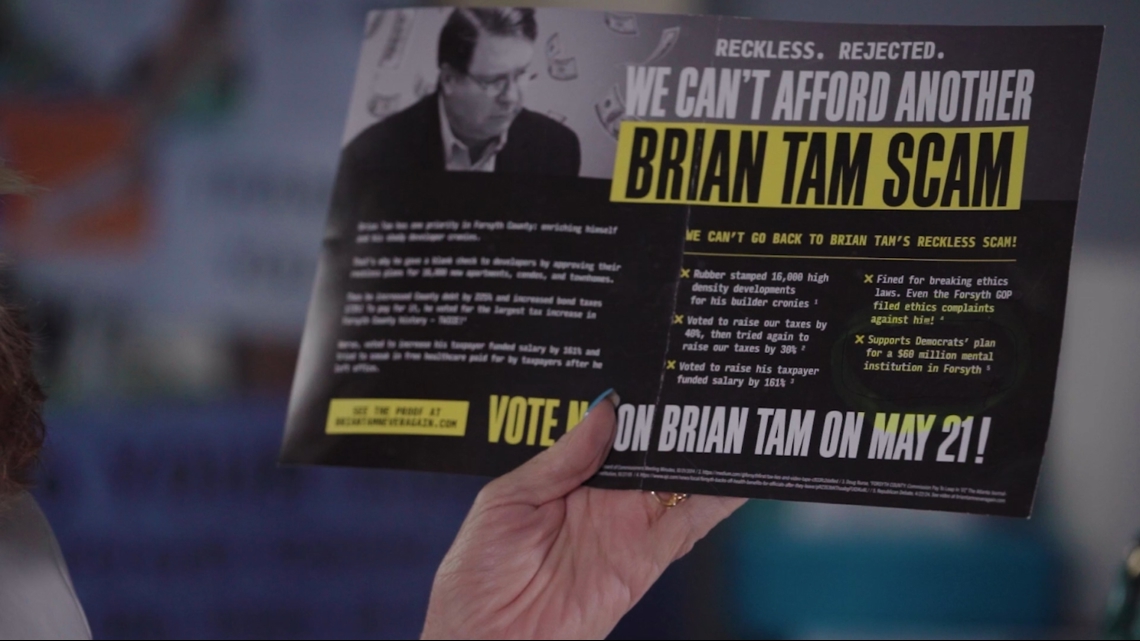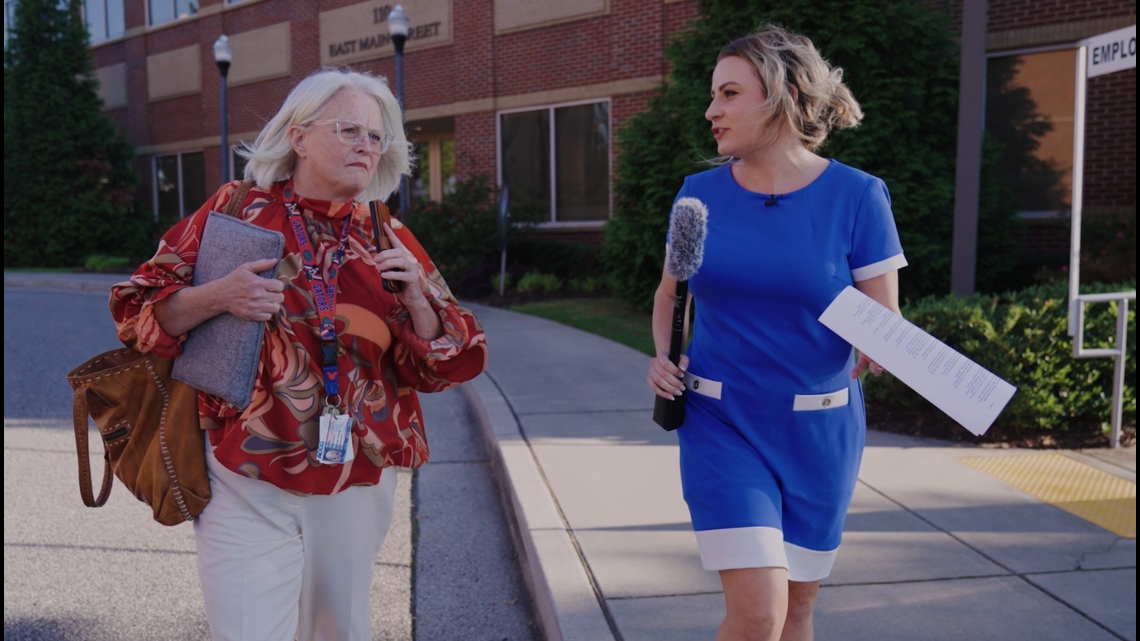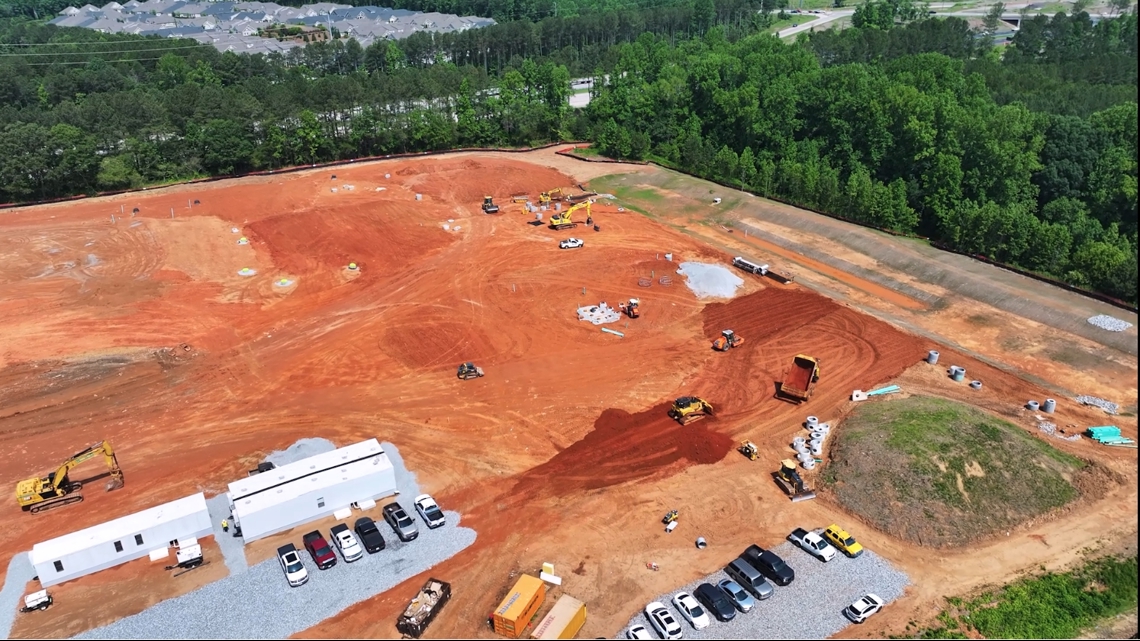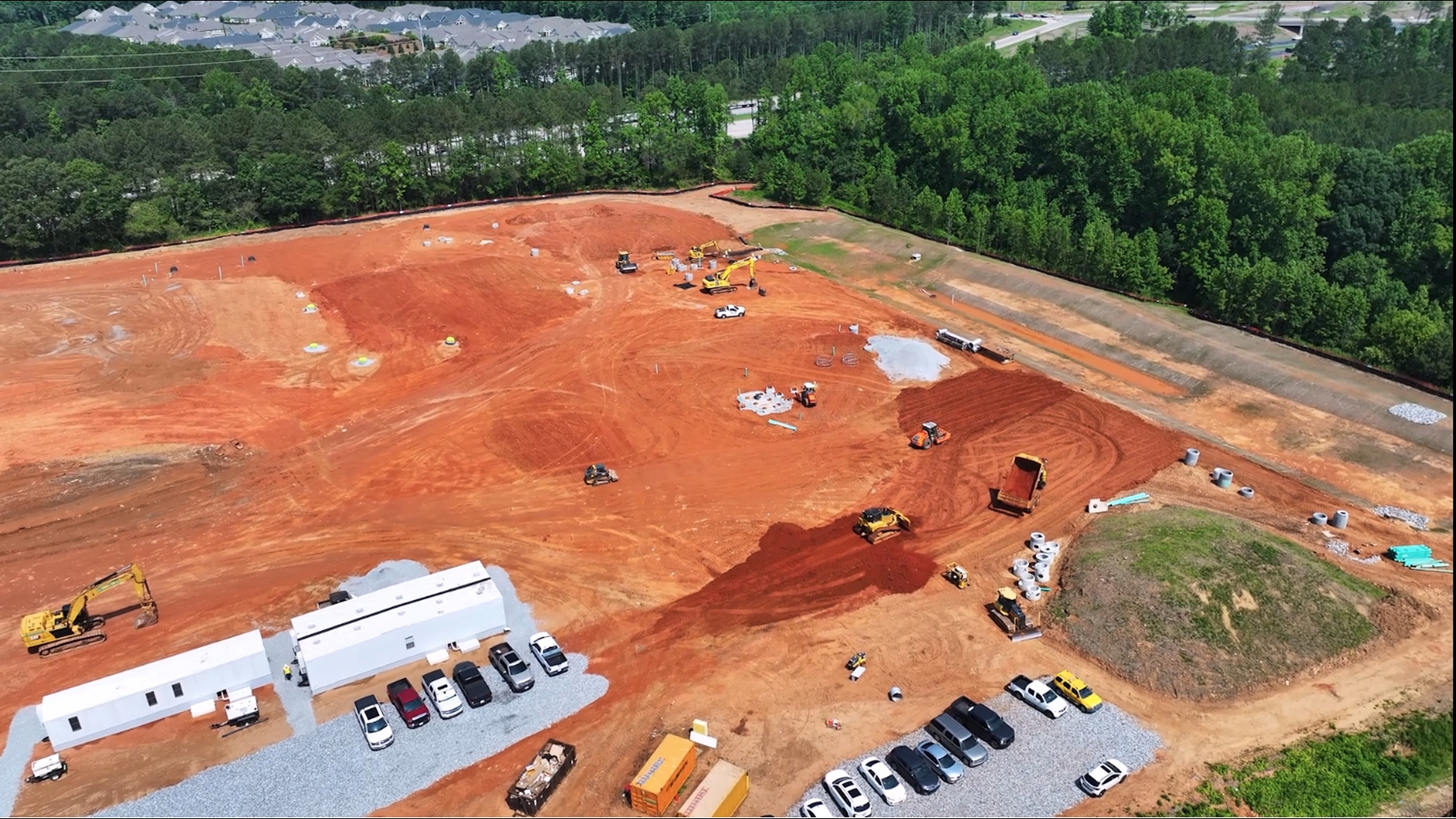FORSYTH COUNTY, Ga. — Mental health advocates say Forsyth County commissioners have backtracked on a plan to build a mental health crisis stabilization center, after already spending nearly $3 million of taxpayer dollars on the project.
Commissioner Cindy Mills, who served on the board since 2016 but opted not to seek re-election after 2024, said the project was voted through unanimously eight times over three years.
She said about $2.5 million taxpayer dollars were spent to come up with the design. About $30 million in federal funds from the COVID-era American Rescue Plan (ARPA) were set aside to cover the rest.
"When we got this money in 2021 it was almost like Manna from heaven because it was something not expected," Mills said. "It was an opportunity to have $30 million to go toward mental health."
The proposed plan for what was going to be called the Whole Health Center would have 31 beds allocated for adults and children who are in the midst of a mental health crisis like suicidal thoughts or self-harm.
Dozens of residents and mental health advocates attended the Board of Commissioners meetings to emphasize the need for those beds throughout the planning process.
One of those residents was Sherry Unwala, who lost her 25-year-old son Karl to suicide in 2008.
Since there are currently so few dedicated mental health beds available in Georgia, Unwala recalled when Karl expressed suicidal thoughts, their only choice was to bring him to the nearest emergency room.
"We had no place else to turn to," she said. "He was crying, so they just said mental issues, just labeled him and send him away. He came home... and within a few days, he took his life.”
For children, the situation is even more dire. There is only one mental health facility in the state that caters exclusively to youth under 18, and it's in Savannah -- nearly 300 miles away.
For advocates like Elizabeth Johnson, the Whole Health Center seemed to be a promising solution. Johnson is the executive director of Jesse's House, a home for adolescent girls who have suffered from abuse or neglect or have been abandoned.
"There are countless kids in this county that have looked for some direction," Johnson said. "Their parents have said, 'Where can I go? Who can I talk to?'"
Johnson told commissioners that in 2018, 66% of the girls that Jesse's House serves had to be hospitalized for suicidal thoughts, attempts, or self-harm. In 2023, that number grew to 87%, a number Johnson says is reflective of the growing mental health crisis among young people.
"They need somewhere to become stable, to be managed at a level that we're not equipped to do," Johnson said. "When we have somebody in a crisis, we're more or less saying, 'Hold tight, we know you're in a crisis.' But it's going to be a couple days before anyone can address it. We could never do that to somebody who's dealing with a physical issue like a broken leg."
The plan for Whole Health Center seemed to screech to a halt when the estimated cost of the project came in several million dollars over the $30 million budget. Mills said that's when her fellow commissioners (aside from Commissioner Levent, who still voiced support for the facility) suggested putting the COVID ARPA money elsewhere.
Mills said she took it upon herself to speak with the project manager, who quickly confirmed there was a way they could get the project under budget and still move forward.
"By then, their minds were made up," Mills said. "They did an about face, and I believe with all my heart the only thing I believe that it's the stigma."
Mary Shaffer with the National Alliance on Mental Illness (NAMI) Forsyth was part of a mental health coalition helping with the center's plans. She recalled when Mills broke the news to their group.
"Cindy came to our coalition and said, 'You guys, I'm sorry, but I think this is going to go away,'" Shaffer said. "I felt gut-punched. It's like, 'How can I give the people that come to us hope?' Because they can't find care for their loved ones and it breaks my heart."
Shaffer said she believes the stigma of mental illness was weaponized in the May primary election as a partisan issue, lending to the change of plans.
She held up a campaign flyer for Chairman Alfred John that was mailed to her house.
"Brian Tam supports Democrat's plan for a $60 million mental health institution in Forsyth," it read.
Shaffer, who doesn't know where the $60 million number came from, said she also received a campaign text with similar claims.
"Brian Tam voiced support for a $60 million state-run mental institution paid for with your tax dollars," she read from the text message. "The institution would be filled with people bussed in from around the state who will eventually find themselves on the street with no resources. Forsyth homeowners would have to pay for it, and Forsyth families wouldn't be able to use it."


The claims, Shaffer pointed out, are patently false.
"It's fear-mongering," she said. "It's not a $60 million project, it's not an institution, people won't be bussed in, it's not a democratic issue. It's meant to scare people."
Chairman Alfred John declined to be interviewed by 11Alive Investigates. Commissioner Laura Semanson agreed to be interviewed but stated that her only availability was nearly two weeks later and after the election.
11Alive Investigates attended the May 16th Board of Commissioners meeting, the last scheduled meeting before the election. She requested to speak with the commissioners after the meeting. While walking to her car, we asked Commissioner Semanson when she'd changed her mind about the mental health facility.
"That's not really an accurate depiction of what occurred," Semanson said. When asked what would be more accurate, Semanson got in her car and left, indicating she wasn't able to stop to elaborate further.


The next day, in an email, Semanson wrote to 11Alive, saying in part, "This is not 'breaking news.' This subject has been a source of debate on our board for several months." She also accused Commissioner Mills of "placing" the story with 11Alive.
"What you may not realize is you have been used as a pawn in her political manipulations," Semanson wrote.
Unwala, who, in fact, was the sole person who pitched the story to 11Alive Investigates, said she was devastated to learn the Whole Health Center may never happen.
"They just have to look at us and listen to us and know that there's a need," she said. "Look at me and listen. Look in my eyes. Show me some empathy of what I went through or what our kids are going through, what our community is going through."
Forsyth County spokesperson Russel Brown did immediately respond to 11Alive Investigates' request for comment and agreed to an on-camera interview after the May 16th meeting. He said the commissioners have discussed alternate options for the ARPA funds.
"A lot of infrastructure options, certainly one of them with our water and sewer department as this county just continues to grow," he said. "There have been a few different ways the county could utilize those funds. And all of those have been vetted, investigated and, and looked at to see what the right options are."
When asked why those alternate options had not yet been formally presented to the public, Brown said the discussions had taken place internally.
"Make no mistake, the commissioners are certainly committed to mental health in the community. It's just finding that right option," he said. "Another component to keep in mind here is how the state factors into all of this as well. It's a process that the county wants to make sure it gets right for our community."


The state's responsibility to fund mental health resources has been a point of contention in the project's consideration.
"I do think sincerely that some of (the commissioners) don't believe government should be getting involved in this, and they think that if the state wants a hospital, let the state build a hospital," Mills said. "I've heard, too, that the state has this big surplus, so why should we be taking our money and putting it toward it?"
During a recent board meeting, Commissioner Semanson also raised concerns that since the state would be funding the Whole Health Center, it would be open to anyone, leaving no guarantee that Forsyth County residents would even get to use the facility.
Mills pointed out that currently, Forsyth County residents are often sent to the nearest mental health facility, Hall County, for care.
"They don't want people from other counties using it, even though for five years we've been sending our people to Hall County," Mills said. "We don't care if our people go to their counties. We just don't want their people here."
Advocates worry that if the project can't happen with federal money offered on a silver platter, there's no chance it will pass later with taxpayer money.
"This is our one shot, our one opportunity," Mills said. "The board turned a blind eye, but it's not going to make it get better. And that next kid that comes to school with a gun might shoot.”
Mental health stakeholders are posed to present alternate solutions for the community during an upcoming board of commissioners' work session on June 25 at 2 p.m.
There is currently no date set on when the board will vote on how to use the ARPA funds officially, but Brown confirmed any official action taken will be done during a scheduled meeting. Those meetings are open to the public. The calendar and agendas for those meetings can be found online here.

